June 6, 2024
Transport
Supply chains are still a bit of a mess since the pandemic. The ongoing geopolitical crises, climate change effects, and poor private sector management of large projects are putting intense strain on the transport industry and the costs cannot be understated.
The impacts are not direct, but the following are impacting the costs of goods
- shifts and destabilization of shipping routes because of war/conflict
- lack of alternative land transportation including rail
- delays in expansion of infrastructure projects including marine ports and airports
- changing weather patterns
- droughts and their effect on navigable channels such as the panama canal in inland waterways
- USA's shift in orientation to China and Russia production
- Europe's shift in buying because of the Russian war and access to energy inputs
- Europe's new inputs tracking dealing with deforestation
- Due diligence on human trafficking regulations
All these have impacts on the supply chain's ability to move goods from where they are extracted to where goods are made to where consumers purchase them.
You will notice that labour unions and industrial action are not listed. As we have discussed previously, there is no indication that labour action has profound/lasting impact on supply chains even when strike shut down entire ports.
Let's have a look at some of the above issues.
Much has been made of the shift away from "just in time" production processes since the pandemic. Many have said that the pandemic showed that the profit maximization program created too delicate supply chains. But, that's not the whole story. Just in time was a business practice out of a business textbook developed by people who had not real understanding of the world of transport. It was a failure before the pandemic with many example of billions invested only to result in failure.
The TTC light rail cars are an example of this process where production of different parts are distributed around the world and then assembled in a central place. Turns out, those parts do not fit together well when not produced by the single plant.
Boeing is another example of this failed model.
"Just in time" has moved to a 1-3 month buffer as production is moved around and re-centralized.
Since then we have seen an increase in the amount of time it takes to move goods around the world. As such, warehousing of extra supply has become and issue because if you cannot use goods "just in time" as they are produced, you have to store them somewhere.
This increases costs of transport, which increases costs of production.
There have been wild swing of 25% in time to destination for many products.
Add to this geopolitical crises and challenges because of climate change and we have seen a 30% shift in spot rates of shipping containers as they go from full to empty quickly.
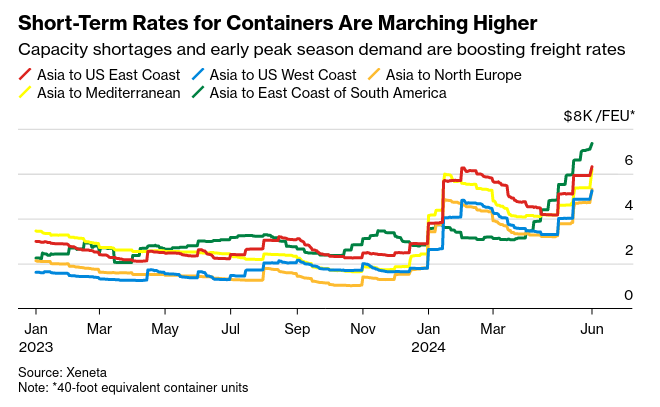
The knock on effect of unpredictable shipping routes means that there is an increase in the amount of time that shipping from different parts of the world takes.
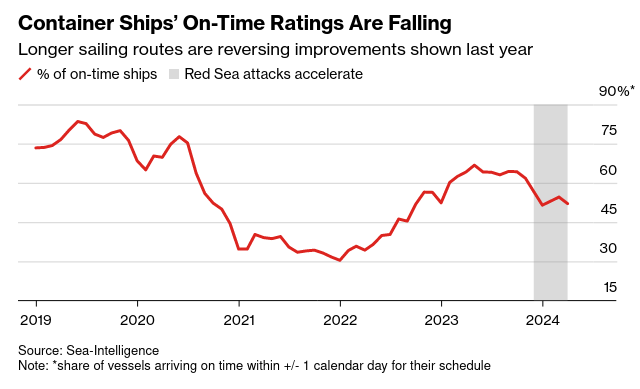
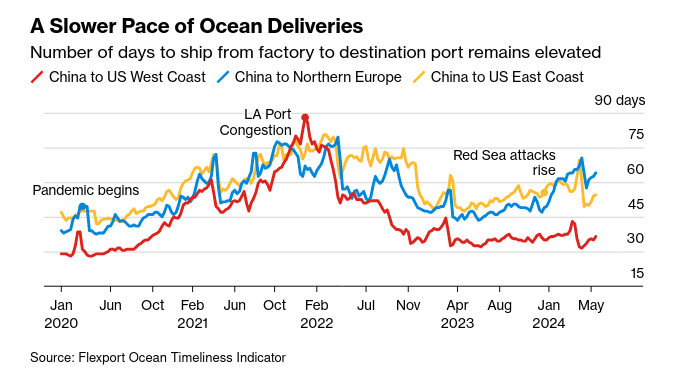
The other impact has been states scrambling to support expansion of warehousing (not like Amazon warehousing, but industrial product warehousing), transport hubs expansion, and over-land route expansion.
Over land route expansion is no less impacted by climate change events than on water, but it is about expanding redundant routes.
If you think trains cannot be knocked over by high winds in a storm, think again.
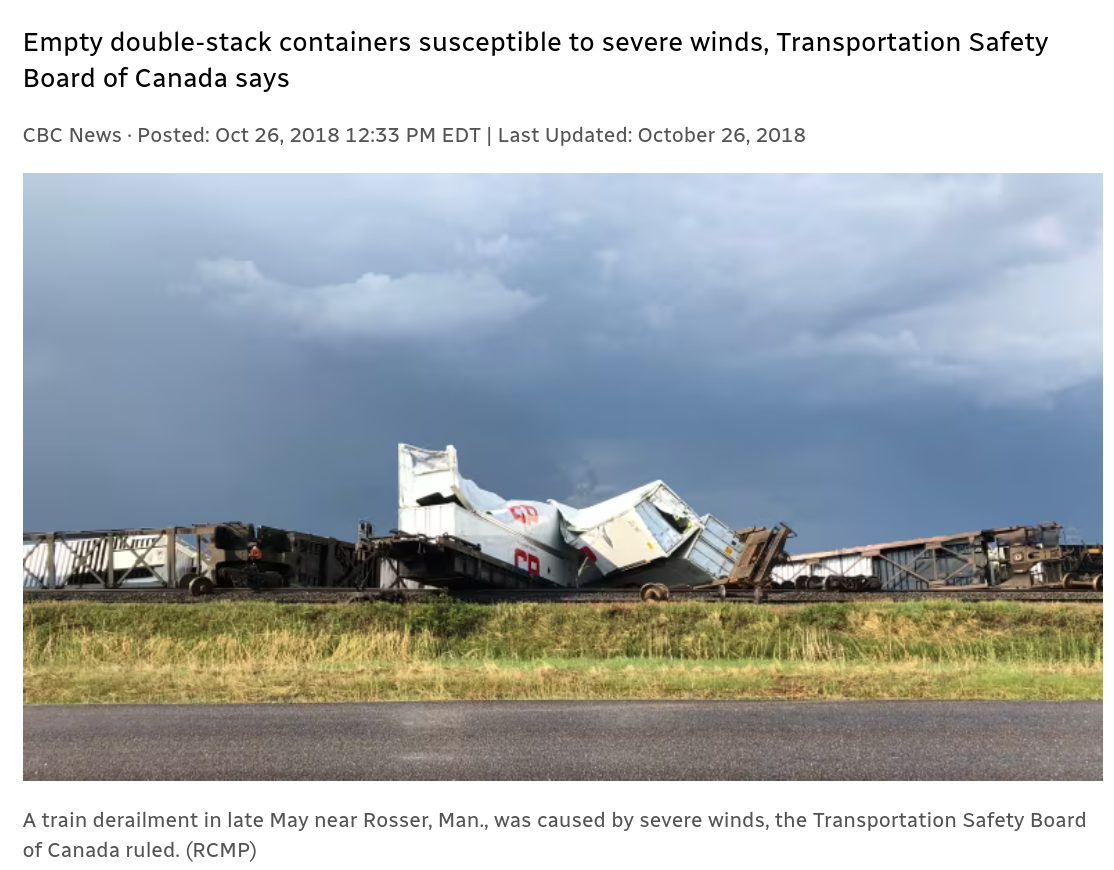
Expansion of rail redundant to current routes include the Mexican rail revitalization.
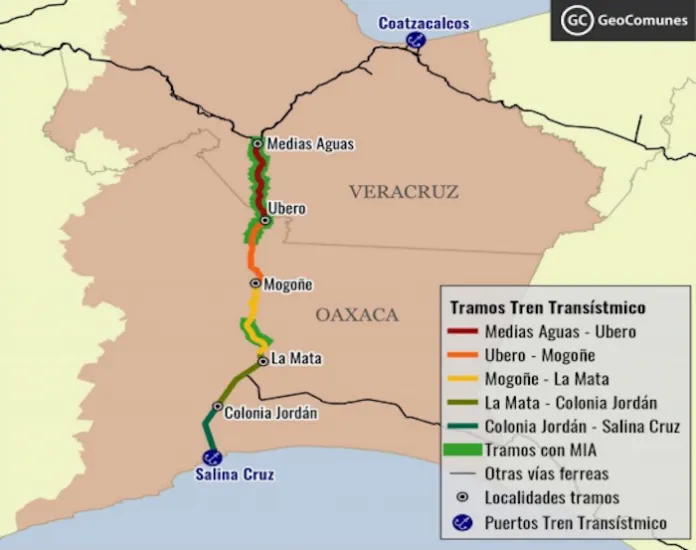
And rail links in Africa for critical mineral expansion. Many of them private and many of them having problems such as this one:
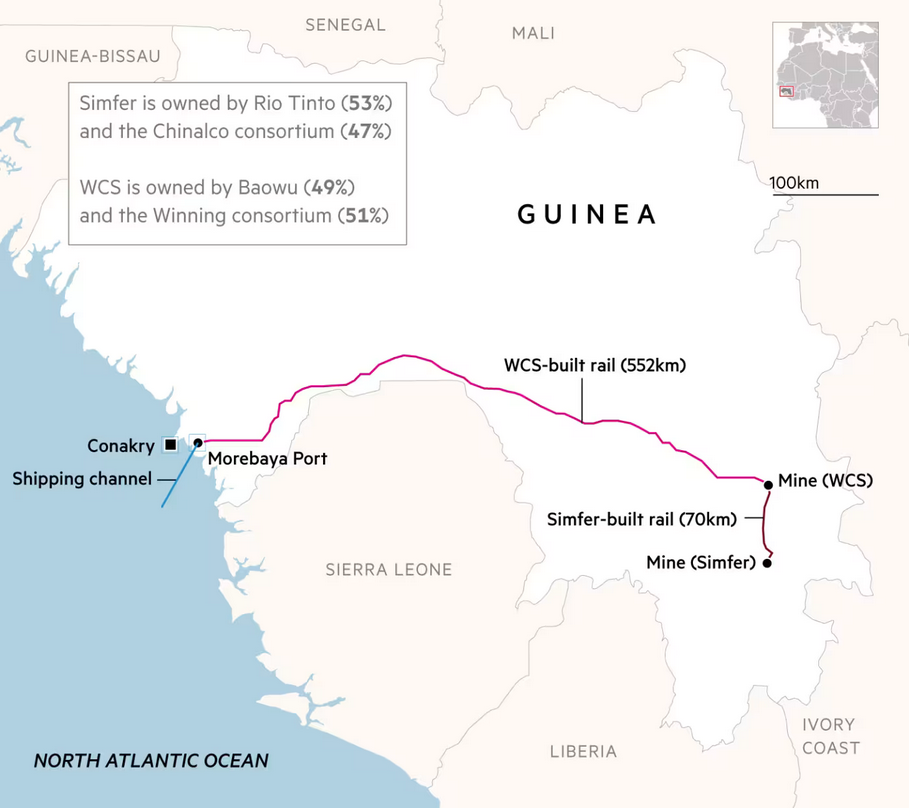
And Russian publicly owned RZD continues to operate carrying parcels for DHL in the face of war.
For quicker delivery, many goods that depended on just in time travel and logistics (such as fruit and vegetables (and flowers) have shifted to airlines. Air freight prices have increased dramatically as a result of increased demand and collapsed supply of planes (thanks to Boeing just being a terrible company).
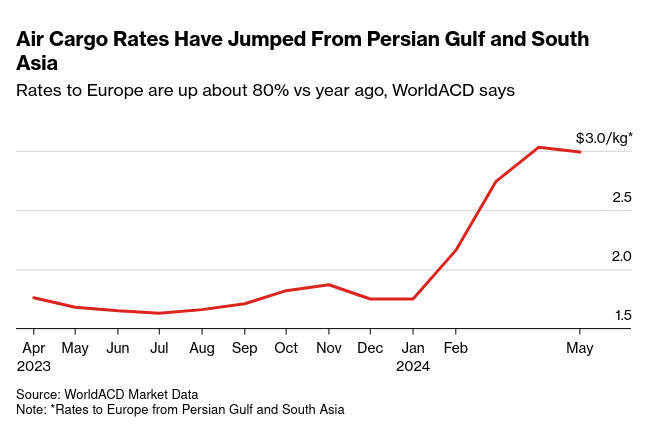
Just as this movement of goods mini-crisis continues to roll-on, the governments around the world are starting to wake-up to the environmental destruction wrought by companies expanding production by destroying the environment.
Deforestation is a huge one for Europe as they have already cut down all their trees, they do not want developing countries following suit. Sure, it is imperialist in mindset, but it also is not incorrect.
Recent regulations called:
REGULATION (EU) 2023/1115 OF THE EUROPEAN PARLIAMENT AND OF THE COUNCIL of 31 May 2023 on the making available on the Union market and the export from the Union of certain commodities and products associated with deforestation and forest degradation and repealing Regulation (EU) No 995/2010
Or, European Union Deforestation Regulation. EUDR for short.
It seeks to track the production chain of goods such as coffee, cocoa, soy, palm oil, cattle, rubber and wood to make sure no deforestation has happened since 2020 to aid in its production.
A valiant goal. One that entirely puts the cost of proving that no deforestation has happened on to those who produce. Are free market regulation not great or what?
The reality is that most farmers are not even aware this regulation has been adopted (why would the EU fund a program to enforce their own regulation by telling farmers?).
The new regulation covers about 55 or so countries and about $100M a year of goods.
Most of these goods (like coffee) have been through a process to fight global free trade programs through setting-up Fair Trade initiatives. Programs where small-scale farmers are the producers and centralize export through coops and the like. Each farmer now has to meet these regulations to have their goods get into the EU. Not super great for the small-scale farmers.
Obviously, this is going to affect supply chains, as different countries have different infrastructure to meet the regulations. There is also the issue of production currently being driven by deforestation in many place. These places will have to change where they send their crop, since it isn't like an EU regulation affects the rest of the world.
Pressure from the top through global market forces is not really an equitable way to do this, but here we are.
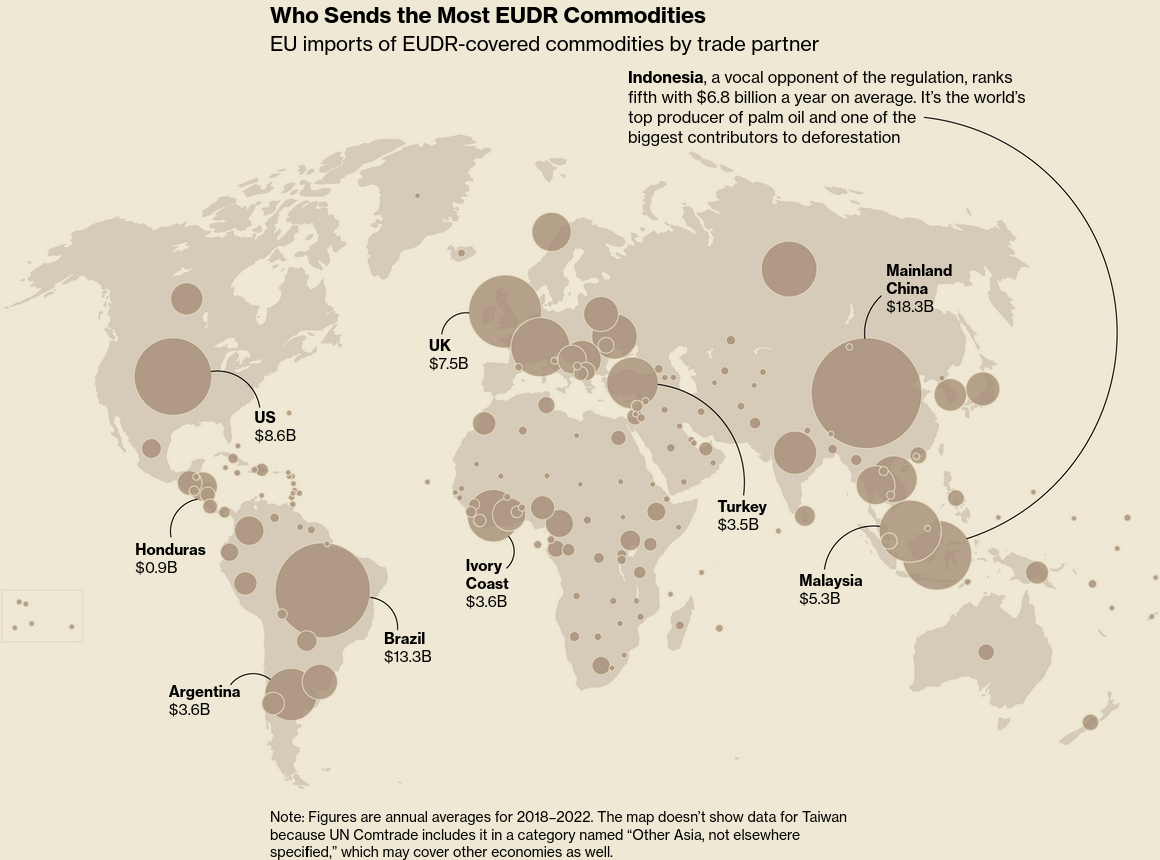
Now, regulations are great. But, funding the implementation of regulations and understanding the mapping of regulation impact is something that must be done by those adopting the regulations. The impact can be rather dramatic otherwise, and not always in the way we think.
Finally, there is the expansion of infrastructure. Lima is the latest example of private investments causing problems. The airport in Lima is private and has been, by magic market forces, pushed to invest in a new runway.
You might think that this is the way that the private market is supposed to work. Private company gets market signal, pulls together private money/investment, and invests in expansion. If only.
LAP (a german state owned entity that is financialized) owns the Lima airport. It has brought together large investors to fund the massive project from the start. The issue is that it is rather terrible (no surprise) at running the airport as is, never mind building the new wing. The private investors just fight with each other over who pays and who gets paid between the ones that financed the original build and those financing the expansion. Meanwhile Peruvian consumers of air travel become stuck.
Most recently, the lights went out at the airport. Guess who was blamed? Yeah, not the private companies, but the government.
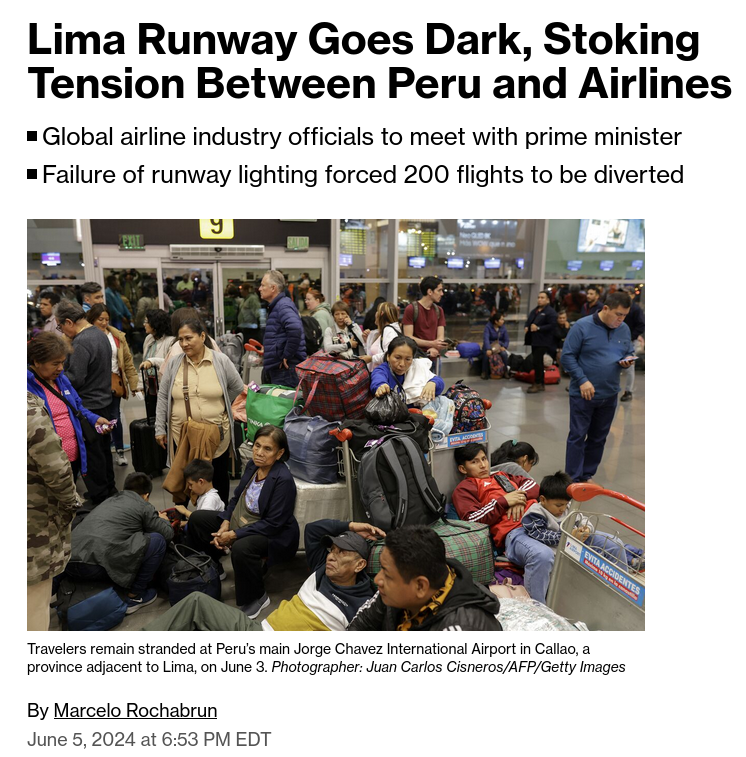
You cannot offload responsibility for nationally important infrastructure to the private sector. And the private sector does not do it well.
This is just one example. We have privatized much of our infrastructure internationally when it comes to supply chains. As we deal with the impacts of climate change and war, we have put ourselves in a situation where rapid expansion and proper investment is more difficult because we have put the private sector front and centre.
The selling of our large infrastructure like airports, marine ports, and passenger rail infrastructure in Canada to pension funds (as if this was not privatization) is not going to be the panacea we need.
 Marine Road Rail
Marine Road Rail